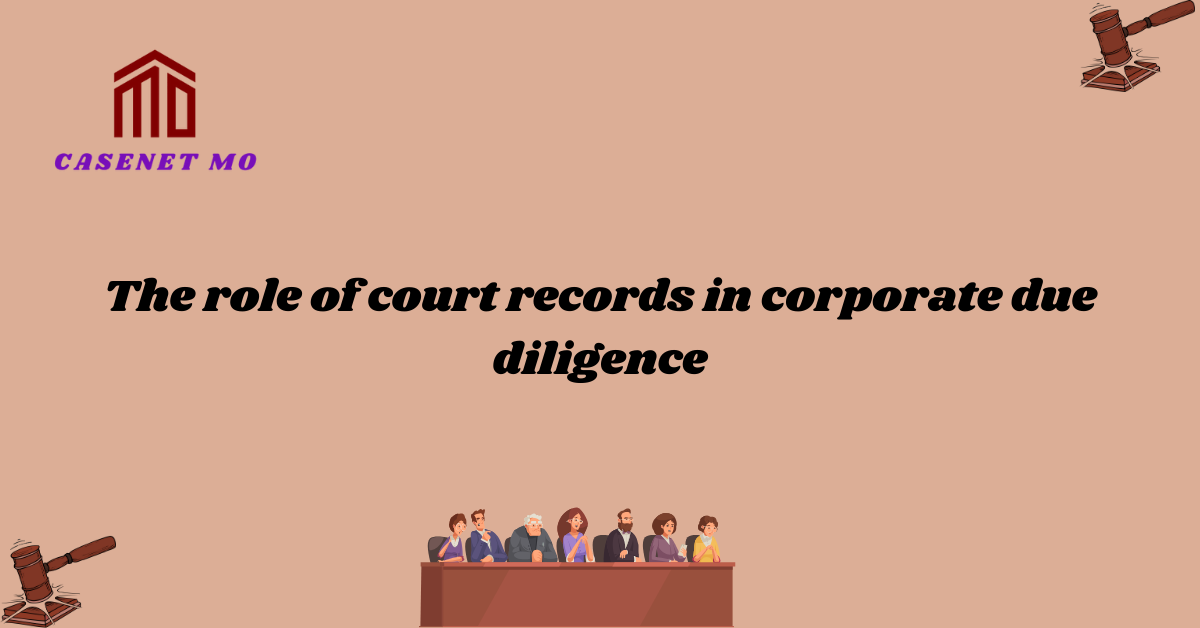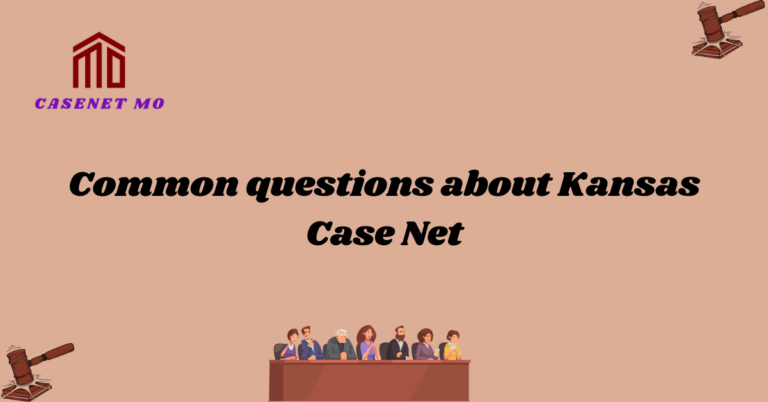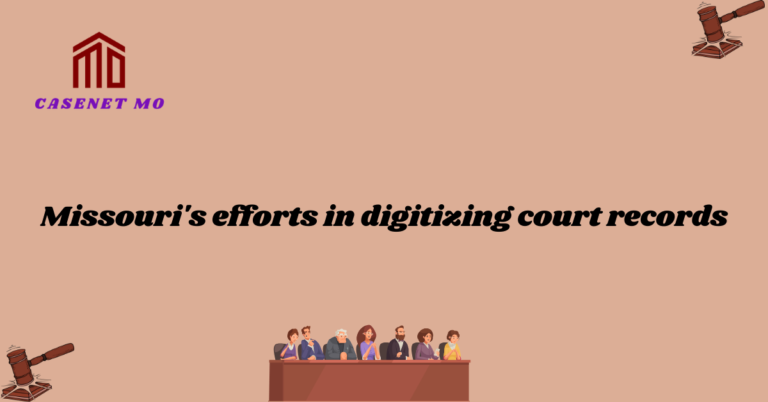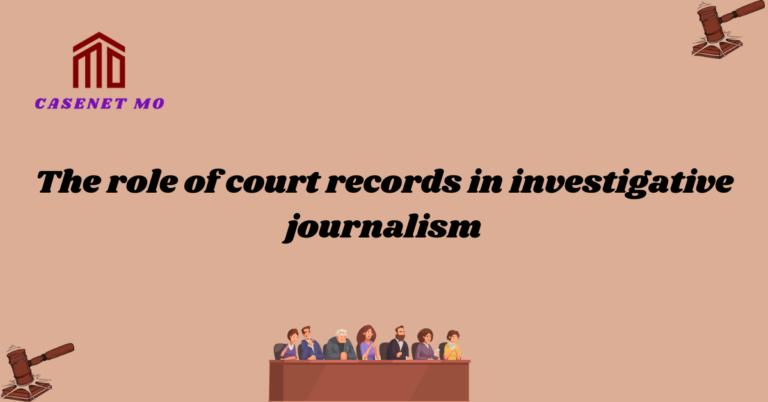The role of court records in corporate due diligence
Court records play a crucial role in corporate due diligence, providing valuable insights and information that can greatly impact business decisions. By delving into the extensive documentation and records kept by the courts, businesses can gain a comprehensive understanding of the legal landscape surrounding potential partners, competitors, or clients.
These records serve as a window into the history and background of a company, shedding light on past lawsuits, regulatory actions, and financial disputes. With this knowledge in hand, businesses can make more informed decisions, mitigating potential risks and ensuring that they enter into partnerships or transactions with their eyes wide open.
Understanding the Legal Landscape
When it comes to corporate due diligence, gaining a comprehensive understanding of the legal landscape is paramount. Court records offer a wealth of valuable insights and information that can greatly impact business decisions. By delving into the extensive documentation and records kept by the courts, businesses can uncover a treasure trove of information that goes beyond what meets the eye.
A Glimpse into Company History
One of the key benefits of accessing court records is gaining a window into the history and background of a company. These records can shed light on past lawsuits, regulatory actions, and financial disputes that a company has been involved in. Such information can prove invaluable in assessing the reputation and integrity of potential partners, competitors, or clients.
Identifying Potential Risks
The information obtained from court records allows businesses to identify potential risks before entering into partnerships or transactions. By studying past legal actions, businesses can gain insights into any patterns of misconduct or unethical behavior exhibited by a company. This knowledge empowers businesses to make more informed decisions, mitigating potential risks and protecting their own interests.
Uncovering Hidden Liabilities
Hidden liabilities can pose significant risks to businesses. Court records can provide crucial insights into any ongoing or pending legal actions against a company. By uncovering these hidden liabilities, businesses can better assess the financial stability and potential legal exposure of their partners or competitors.
Ensuring Transparency and Compliance
Transparency and compliance are of utmost importance in business dealings. Court records can reveal any instances of non-compliance, regulatory violations, or fraudulent activities associated with a company. Armed with this knowledge, businesses can ensure that they are engaging with reputable and compliant entities, safeguarding their own reputation and legal standing.
Avoiding Costly Mistakes
By leveraging court records, businesses can avoid costly mistakes and minimize the chances of entering into unfavorable partnerships or transactions. The information obtained can help businesses assess the legal risks associated with a company and make informed decisions that align with their long-term goals and objectives.
FAQs
What are court docs in corporate due diligence?
Court records refer to official documents and proceedings related to legal cases filed in courts. In corporate due diligence, these records provide valuable insight into a company’s legal history, including past lawsuits, regulatory actions, and disputes. They can include details on lawsuits involving intellectual property, contracts, employment disputes, regulatory violations, and more.
Why are court records important in corporate due diligence?
Court records offer a comprehensive view of a company’s legal liabilities and potential risks. By examining past legal actions, investors, potential partners, and buyers can assess the company’s litigation history, identify patterns of legal issues, and evaluate the potential impact on its financial stability and reputation. This information helps stakeholders make informed decisions about engaging with the company.
What’s in court records for due diligence?
Court records can contain a wide range of information, including details about lawsuits, judgments, settlements, court orders, bankruptcy filings, and regulatory enforcement actions. They may also include transcripts of hearings, evidence submitted, and rulings by judges. Additionally, court records can reveal information about a company’s business practices, compliance with regulations, and relationships with customers, suppliers, and competitors.
How to access court records for due diligence?
Court records are typically public documents and can be accessed through various channels, including online databases, courthouse records offices, and third-party services specializing in legal research. Depending on the jurisdiction and the nature of the case, access to certain court records may be restricted or require authorization. It’s essential to use reliable sources and verify the accuracy of the information obtained from court records.
Which court record red flags indicate due diligence issues?
When reviewing court records as part of due diligence, stakeholders should watch for red flags such as a high frequency of lawsuits or legal disputes, significant financial liabilities from judgments or settlements, ongoing litigation that could impact the company’s operations or finances, and patterns of regulatory violations or compliance issues. These indicators may signal potential risks and warrant further investigation or risk mitigation strategies.
Conclusion
court records offer a wealth of information that significantly impacts business decisions. Understanding the legal landscape, identifying potential risks, uncovering hidden liabilities, ensuring transparency and compliance, and avoiding costly mistakes is key to navigating the corporate world with confidence and making informed choices for success.







